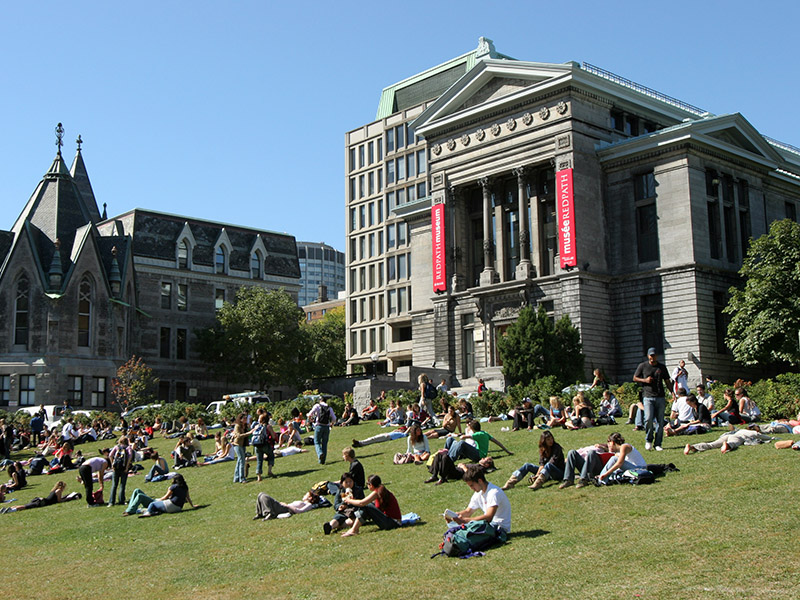McGill University’s response to allegations of anti-Semitism that were made following an undergraduate students’ union meeting last fall was criticized by students, faculty and staff.
Confidence in the university’s leadership was shaken by this incident, according to the final report of the Principal’s Task Force on Respect and Inclusion in Campus Life. The conclusions of the ad hoc body, which was created by principal Suzanne Fortier in the aftermath of the contentious vote against a pro-Israel student leader at the October general assembly of the Students’ Society of McGill University (SSMU), were made public on May 16, following an extensive consultation with students, faculty, as well as administrative and support staff.
This was the second, broader investigation initiated by Fortier, independent of the earlier inquiry specifically into the charges of anti-Semitism. The task force’s mandate was to sound out the entire university community and make recommendations on how to foster more civil debate in general, while protecting free expression.
Although it was not their focus, the authors of he 35-page report found dissatisfaction with the way the Students’ Society of McGill University (SSMU) controversy was handled by those at the top.
“The response of university leaders, and the principal in particular, to the October 2017 general assembly and the BDS debate was the source of significant alarm by many survey respondents,” the report states. “There was a perception that the principal has taken sides on the controversy, notwithstanding a diversity of opinions on campus on these issues.”
Fortier has firmly stated McGill’s opposition to the boycott, divestment and sanctions campaign against Israel.
READ: MCGILL WHITEWASHES ANTI-SEMITISM ON CAMPUS
“While a number of respondents took issue with the particular position taken, many others were left to speculate as to why the university had spoken up on this issue, while it had remained silent on so many others.”
Other respondents felt it was an inappropriate intrusion on “the independence of student government,” while some faculty who claim an expertise on these issues felt “disrespected” by the administration for not being consulted.
Many students also indicated a loss of trust in the SSMU, reporting that they “felt alienated, excluded and unrepresented by their student association.
“The events of the October 2017 SSMU general assembly have left many students feeling that student government is driven by personal agendas and internal dissent and motivated by factors completely unrelated to the mandate of student government itself,” the report states.
Not surprisingly, “significant polarization” was found on BDS, anti-Semitism, Islamophobia and the experiences of Palestinian students and their allies.
The task force acknowledged that the response to its university-wide survey was low. The overall rate was 4.5 per cent and, among McGill’s close to 40,000 students, it was just 3.1 per cent. The survey was a questionnaire designed to assess whether existing programs and services “facilitate or inhibit” respect and inclusion.

Over six months, the task force also held focus groups and an open forum, and solicited written submissions from individuals and organizations. Chabad McGill, the Hillel McGill executive board and Am McGill all participated in the process.
A lack of trust in the university administrators was a dominant theme. “The growing perception that decision-makers are not open to input from the community discourages meaningful participation and empowers a small number of individuals who are vocal and often represent narrow agendas,” states the report.
The nine-member task force was co-chaired by Bruce Lennox, dean of the faculty of science, and Nandini Ramanujam, executive director of the Centre for Human Rights and Legal Pluralism.
Fortier said that, “The report is an important step in a continuing process. It is not an end. In the weeks and months ahead, we will discuss, collectively, the report’s observations and recommendations, with a commitment to enhance the teaching, living, learning and research environments on our campuses.
“Some of our discussions might not be easy and it will take openness, courage, humility, leadership and resolve to move forward in a respectful and inclusive way.”
She said the administration will respond to the task force’s recommendations in the fall.
The growing perception that decision-makers are not open to input from the community discourages meaningful participation.
– Principal’s Task Force on Respect and Inclusion in Campus Life
The task force said that trust-building measures, especially better communication, are needed between the university administration and everyone else. Students, staff and faculty alike expressed the view that the top officials are “both physically isolated and out of touch with the needs of the university community.”
“Our consultation process revealed that there is a widely shared perception, whether correct or not, that university communications are reactive, selective, opaque and often unduly influenced by external pressure,” states the report.
“There is a widespread perception that the issues that receive an immediate, and perhaps disproportionate, response from the university are those that are the subject of pressure from donors and alumni, and responses to those selected issues are tailored to respond to external pressure.”






